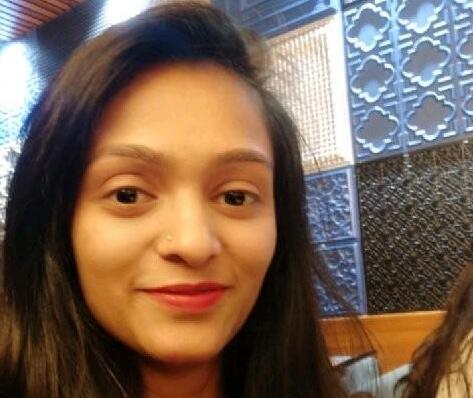GMAT
The Graduate Management Admission Test (GMAT) conducted by the Graduate Management Admission Council (GMAC)
WHAT'S ON THE GMAT?
The Graduate Management Admission Test (GMAT) conducted by the Graduate Management Admission Council (GMAC) is designed to help graduate schools of business assess the qualifications of applicants for advanced study in business and management.
GMAT scores are used by nearly 2,400+ graduate management schools for 7700+ programs across 110+ countries throughout the world. The idea is to have a test that measures skills acquired in (A) Verbal Reasoning, (B) Quantitative Ability, and (C) Data Insights over a period of time.

Test Structure
| Sections | Parts and Number of Questions | Duration | Total Score |
| Quantitative Reasoning | 21 Questions | 45 Minutes | 60-90 |
| Verbal Reasoning | 23 Questions | 45 Minutes | 60-90 |
| Data Insights | 20 Questions | 45 Minutes | 60-90 |
GMAT- Points
- GMAT Focus Edition is a computer-based examination and is a question-wise adaptable exam.
- The overall GMAT Focus Edition score is 805, which is equally divided into the Quantitative, Verbal, and Data Insights sections.
- The overall test time for GMAT is 135 minutes.
- The computer screen shows only one question or question prompt at a time, except for some types of Data Insights.
- The Data Insights section gives questions of different types in random.
- You must choose an answer and confirm your choice before moving on to the next.
- You can bookmark questions to remind yourself to review them at the end of the section.
- Once you answer all of a section’s questions, you may revisit any questions, whether bookmarked or not, and edit up to three answers in the section.
- On exam day, right before you start the exam, you can choose any order in which you will take the three sections.
- At the end of the test, one can send the scores to 5 universities for free.
- Validity: GMAT scores are valid for five years.
- Test Dates: Offered year-round, varying by location.
- The application fee for GMAT General Test is $275 worldwide, which would roughly translate to Rs.22,000 to Rs.23,000 approximately.
Overview of the Verbal Reasoning Measure
There are two types of questions in the Verbal Section: Reading Comprehension and Critical Reasoning. Reading Comprehension and Critical Reasoning questions have sub-types that are designed to test specific verbal skills.
Reading Comprehension
Measures your ability to understand words and statements, understand logical relationships between significant points, draw inferences, and follow the development of quantitative concepts. Specifically, the following reading skills will be tested: main idea, supporting idea, inference, application, logical structure, and style.
Each Reading Comprehension passage comes with questions that ask you to interpret material, draw inferences or apply to a further context. The passages discuss topics including social sciences and humanities, physical and biological sciences, or a business-related field.
Critical Reasoning
Measures your ability to make arguments, evaluate arguments, and formulate or evaluate a plan of action.
Critical Reasoning questions are based on a short reading passage, usually fewer than 100 words. Typically, the short text comes with a question that asks you which of the five answer options strengthens or weakens an argument, tells why the argument is flawed, or strongly supports or damages the argument.
Overview of the Quantitative Reasoning Measure
There is Problem Solving questions that come in this section which require some knowledge of arithmetic, elementary algebra and commonly known concepts of number system. Rest assured that the difficulty of the questions stems from the logic and analytical skills required, not the underlying math skills. Note that you cannot use a calculator while working on the Quantitative section.
Data Sufficiency
Measures your ability to analyse a quantitative problem, recognize which data is relevant, and determine at what point there are enough data to solve the problem.
You will be given a problem that consists of a question and two statements. Using the data in the statements, plus your knowledge of math and everyday facts, you decide whether you have enough data in the statement to answer the question asked.
Overview of the Data Insights Measure
There are five types of questions in the Data Insights—Multi-Source Reasoning, Table Analysis, Graphics Interpretation, Two-Part Analysis, and Data Sufficiency. The questions involve both quantitative and verbal reasoning, either separately or in combination. There are two special features of this section: many questions require more than one response, and you will be able to use an online calculator with basic functions to answer the questions. Because the questions are designed to test your ability to integrate data to solve complex problems, you must answer all responses to a question correctly; no partial credit will be given.
GMAT @ Logic Academy
| Programme | Designed For |
| GMAT Express |
|
| GMAT Busy Bee |
|
| GMAT Early Bird |
|
Our Additional Offerings
- GMAT Minis: 29 Small length Tests with detailed solutions (580 Questions)
- 42 Quant Topic Based Tests with solutions (820 Questions)
- 3 Verbal Reasoning Topic Based Tests with solutions (60 Questions)
- 26 GMAT Full Length Practise Tests with Solutions (520 Questions)
- 15 GMAT CBT’s with updated content and level
- Roots of English Language in story-telling method: 45 Presentations
- 130 Word Power Presentations and 80 Word Games to master Vocabulary
- Exclusive Grammar Sessions to Master Sentence Correction
- Additional Quant Based Assignments developed to match the increased difficulty level and match latest GMAT Questions
- Access to standard Publications like Kaplan , Manhattan , Wiley’s
- One-to-one doubt solving with Faculty Members
Detailed Section Wise Offerings
Quantitative Skills and Data Interpretation
- Logic Based teaching methodology.
- High Emphasis on building strong logic skills rather than formula cramming.
- Special Workshop Sessions to master Data Sufficiency.
- Updated Assignments and Course Structure to match the latest trends in question.
- Workshops for Data Insights section to master Integrated Reasoning and Data Sufficiency.
Verbal Reasoning
- Students undergo a program that acquaints them with some 80 roots of the English Language.
- Episodic methodologies to achieve complete control over elements of the English Language and its usages.
- Methodology of enhancing one’s word power: Cracking the crossword from leading newspapers through an immensely interactive session with the students on a regular basis.
- Reading Comprehension Specific Patterns and types discussed with mentors along with strategies.
- Pattern-specific workshops with strategy discussion with mentors.
GMAT Stalwarts at Logic Academy

Darwin Bhatt
740

Meet Kachhy
740

Mihir Patel
720

Aum Brahmbhatt
710

Devashish Shirolkar
700

Dipal Koladiya
690

Siddharth Durvasula
680

Vikas Rao
670

Ayush Panara
680

Nirupa Dudharta
640
